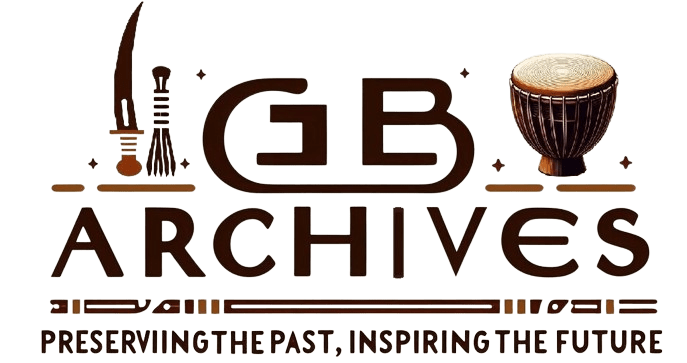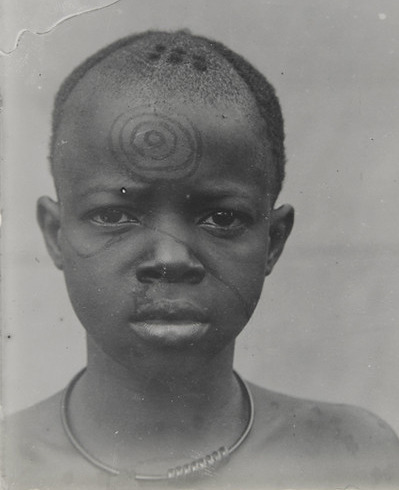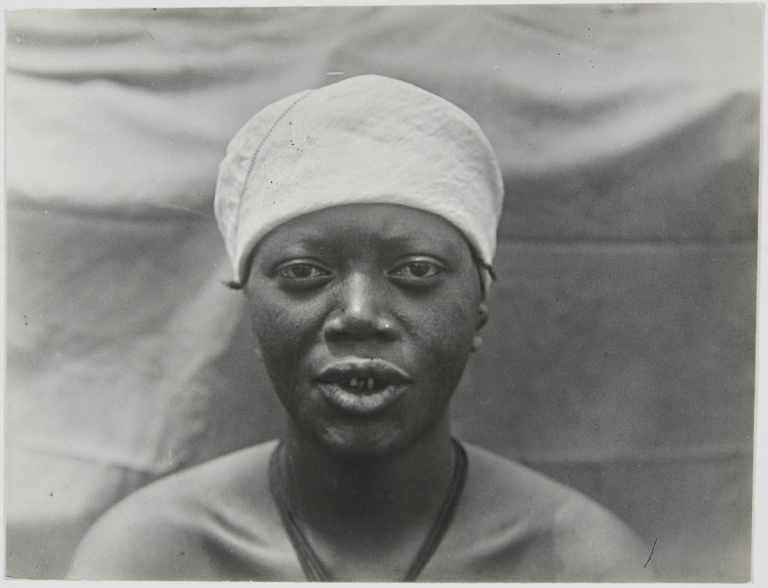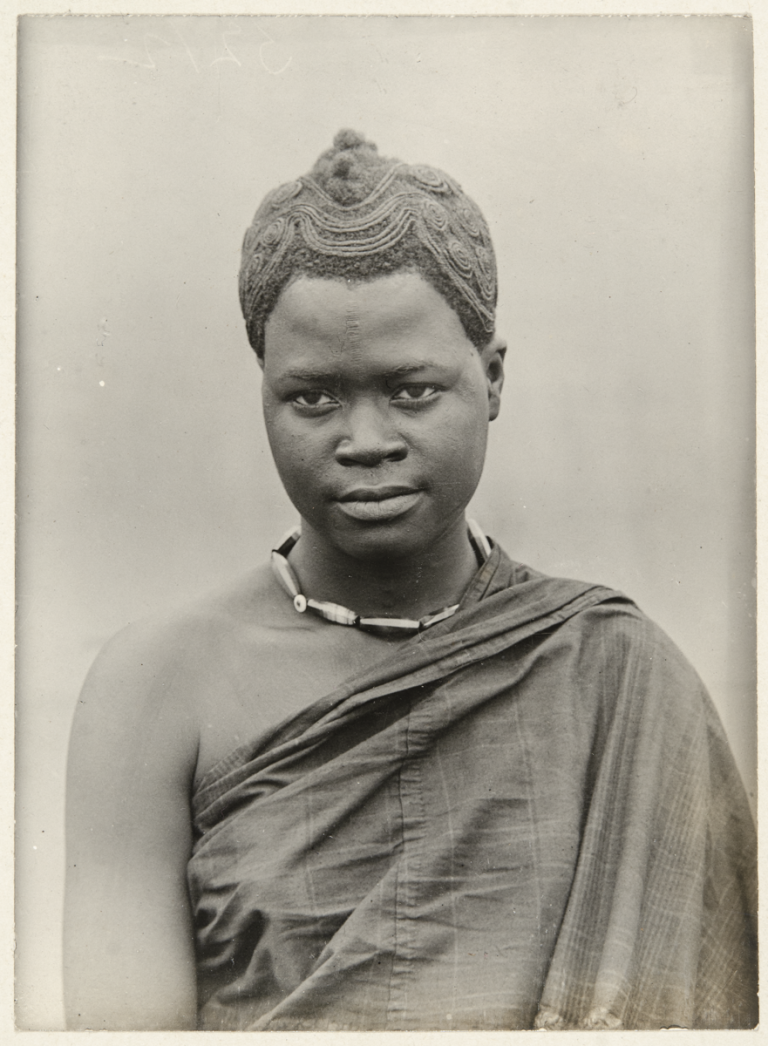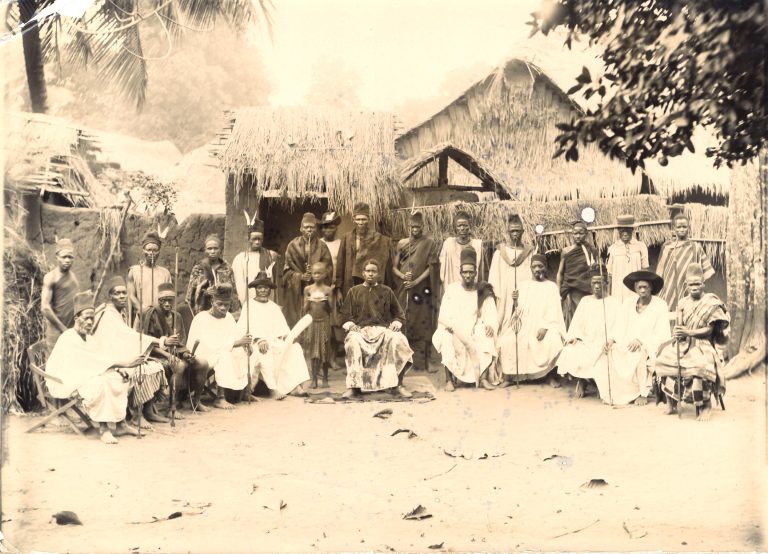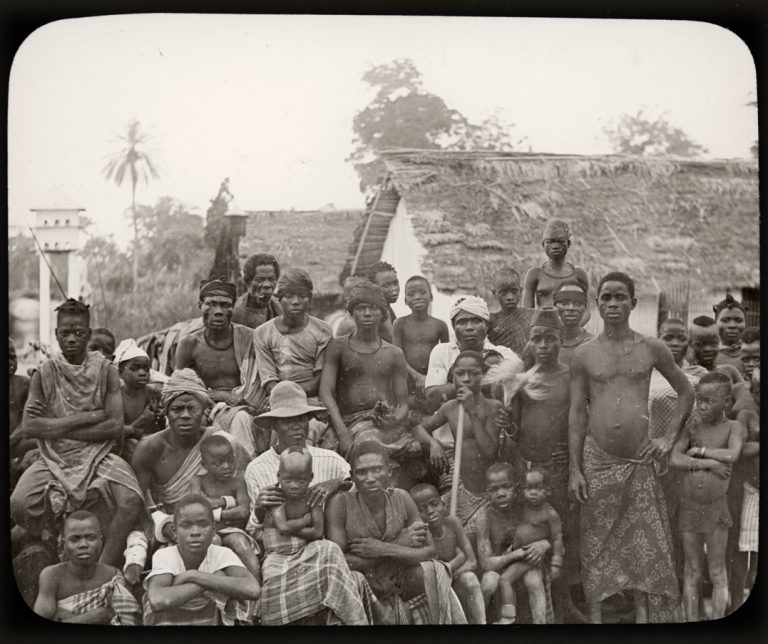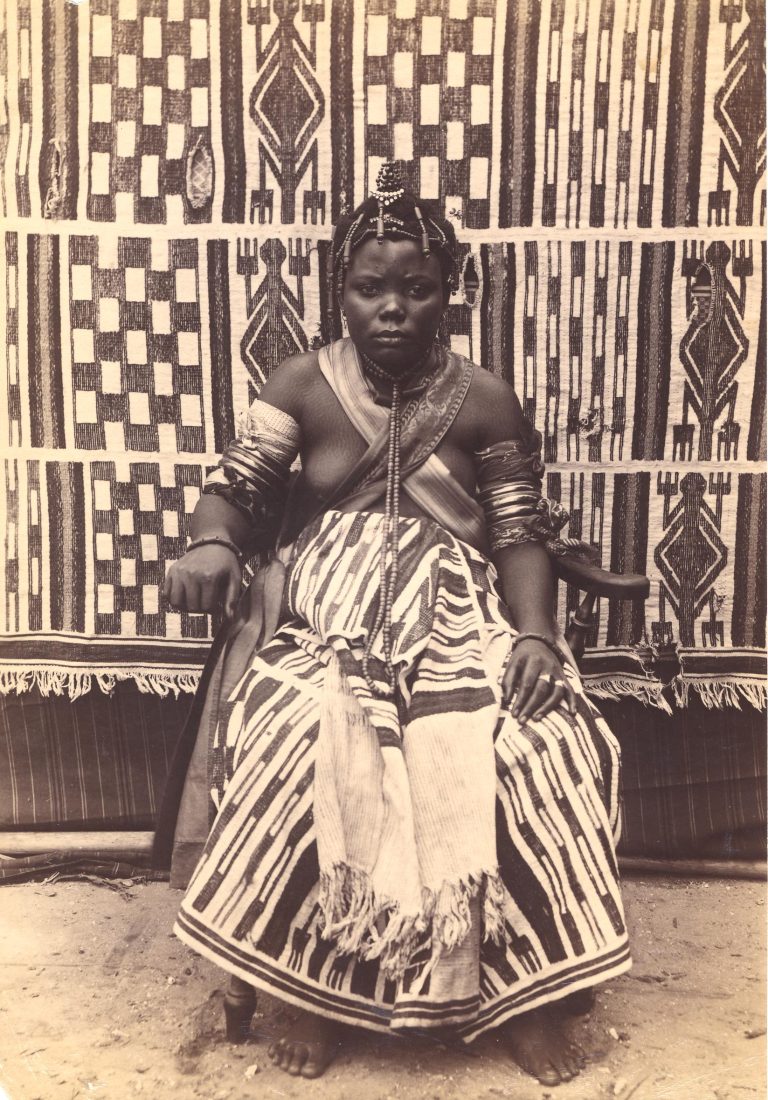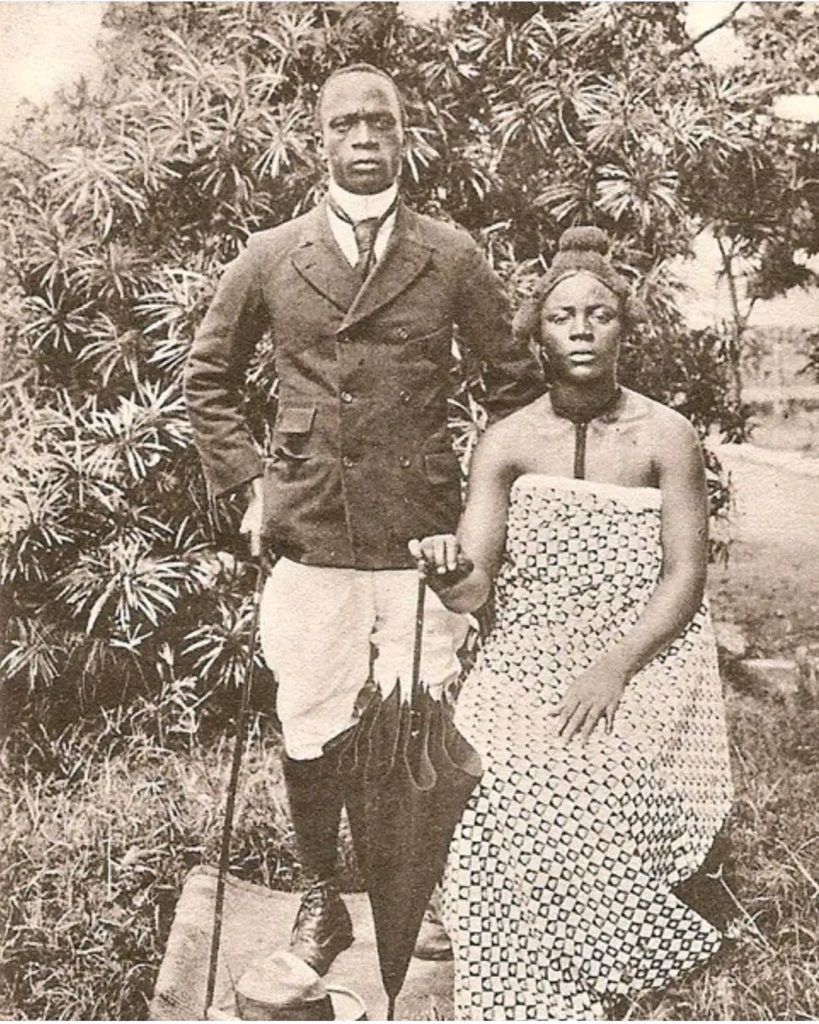
This photograph provides a look into life in Asaba around 1900. It captures a couple whose clothing reflects a blend of cultural influences. The man’s outfit shows signs of European fashion, while the woman’s attire incorporates traditional Igbo elements, illustrating the merging of local and colonial styles during that period.
This photograph offers a fascinating lens into the cultural interplay of the early 20th century. The man’s attire reflects the growing influence of European colonial presence, while the woman’s outfit incorporates traditional Igbo elements such as the woven patterns and head ties, which hold cultural significance. Together, their clothing embodies a blend of continuity and change, showcasing how the Asaba community adapted to colonial influences while preserving key aspects of its identity.
This visual narrative hints at the broader societal shifts of the time. Asaba, situated strategically along the Niger River, was a key location for trade, education, and missionary activities during the colonial era. These interactions introduced new materials and styles while reinforcing traditional practices.
This photograph is more than a portrait; it serves as a historical artifact. Asaba’s history is layered with stories of resilience, from its prominence as a trading hub to its experiences during the Nigerian Civil War decades later. Visual records like this offer a window into daily life, helping us understand how people navigated periods of change and maintained their cultural identity
Explore Further
Explore how such themes have evolved over time in our recommended readings on Asaba’s history and its role in shaping Igbo identity.
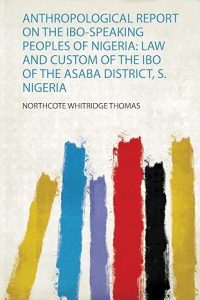 Recommended Books
Recommended BooksOverview: “Anthropological Report on the Ibo-Speaking Peoples of Nigeria: Law and Custom of the Ibo of the Asaba District, S. Nigeria” by Northcote Whitridge Thomas is a reprint of a classic anthropological study originally conducted in the early 20th century. Published on August 12, 2021, by HardPress Limited, this book meticulously documents the legal and […]
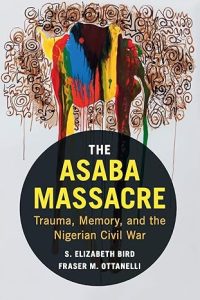 Recommended Books
Recommended BooksOverview: “The Asaba Massacre: Trauma, Memory, and the Nigerian Civil War” is a meticulously researched interdisciplinary study authored by S. Elizabeth Bird and Fraser M. Ottanelli. This book, published by Cambridge University Press on July 31, 2017, offers an in-depth examination of the tragic events in Asaba during the Nigerian Civil War in October 1967, […]
These volumes offer a deep dive into the events that have shaped Asaba and its people, providing context and understanding of the city’s resilience and cultural vibrancy.
Discover more from Igbo Archives
Subscribe to get the latest posts sent to your email.

